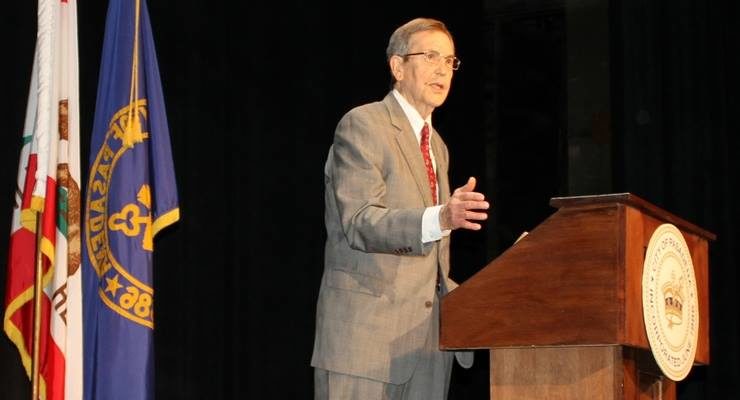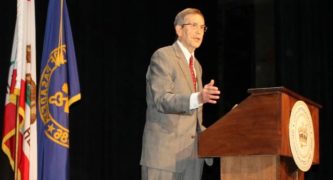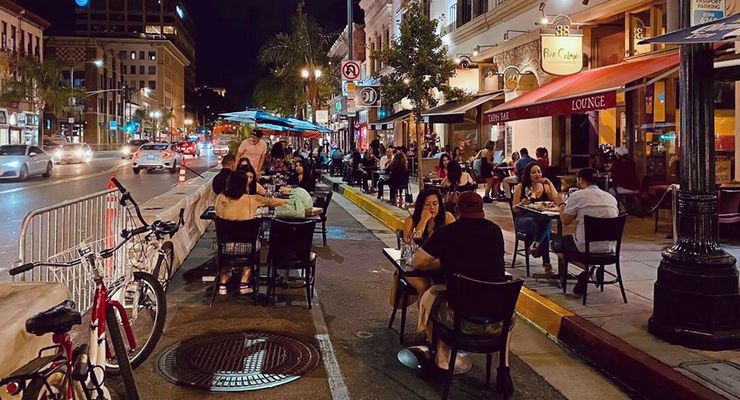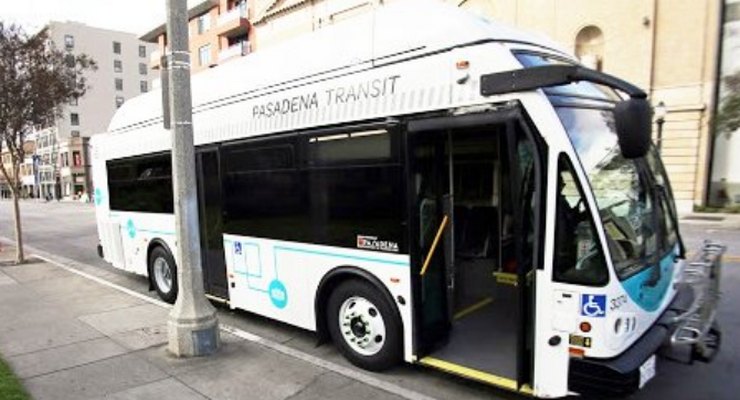
[Updated] Former Mayor Bill Bogaard has been tapped to chair the city’s newly formed Housing Task Force.
Bogaard will serve with Leslie Barnes, Former District 3 Councilman Joel Bryant, Philip Burns, Julianna Delgado, Megan Foker, Akila Gibbs, Allison Henry, Sarah Letts, Anne Miskey, Rita Moreno, Phyllis Mueller, Andrew Oliver, Phlunte Riddle, Stan Rushing, Barry Storch, and J. Noel Toro.
“Mayor Gordo has challenged the task force to formulate policies that protect Pasadena neighborhoods while providing desperately needed affordable, high quality housing for all our residents,” Bogaard said. “The members of the task force have already demonstrated a strong commitment to meet that challenge.”
It was not known when the task force will hold its first meeting.
“Revising the housing element of our General Plan is more than just a planning exercise,” Mayor Victor Gordo wrote in a memo to Bogaard. Bogaard was a major contributor to Gordo’s campaign for mayor and served as Gordo’s campaign treasurer.
“The challenge for the Housing Task Force is to guide the City of Pasadena as we seek to strike the delicate balance between protecting our neighborhoods while providing desperately needed affordable, high quality, housing for all our residents.
According to Gordo, the task force will take a broad, strategic look at all types of housing to ensure all Pasadena residents have access to a safe and decent place to live.
Specifically, the task force will study and recommend:
- Policies to preserve Pasadena’s historic residential neighborhood fabric while meeting responsibilities to target growth to meet the city’s Regional Housing Needs Assessment (RHNA) allocations.
- Policies, incentives and strategies to leverage funding for the construction of sufficient affordable housing to meet the city’s RHNA allocations.
- Policies and incentives to facilitate adaptive reuse of underutilized commercial and institutional structures for housing where densities are compatible with adjacent neighborhoods. Policies and programs for the preservation of existing affordable housing.
- Opportunities to broaden home ownership in furtherance of Pasadena’s values and the community’s wellbeing.
- Opportunities to join with owners of existing multi-unit housing in need of renovation, restoration, and revitalization as a means of retaining affordable housing.
- Opportunities for use of underutilized public lands for affordable housing.
- Other policies, programs, funding mechanisms, and innovative approaches that will promote the goal of ensuring that all Pasadena residents have access to safe and decent housing.
- Keeping the mayor and council informed of its progress through periodic updates and delivering an initial set of recommendations subject to the city’s schedule for adoption of the revised housing element.
Initially, the emphasis will focus on policies, programs and funding strategy recommendations to the Planning Commission and City Council for a comprehensive new General Plan Housing Element.
The task force will also seek consensus that aligns with the General Plan’s overarching principles and the community’s shared values of equity, inclusion and opportunity for all in conjunction with the city’s broad public outreach and community participation in developing the housing element.
Gordo announced during his campaign for mayor last year that he would seat a housing task force.
A California Affordable Housing Needs Report, published by the California Housing Partnership, reported in March 2020 that there was a drastic need for more affordable housing in the state. Under state law, cities are required to provide capacity for their fair share of existing and future regional housing needs. Every eight years, this fair share assignment is determined through the Regional Housing Needs Assessment (RHNA) process, which requires jurisdictions to adopt a housing element to their general plans that shows compliance.
Pasadena’s current RHNA allocation calls for the city to meet a quota of 9,409 housing units before 2029, including 2,379 very-low-income units, 1,659 low-income units, 1,562 moderate-income units, and 3,449 bove-moderate-income units.
City officials have characterized these quotas as “near impossible” to meet and unsuccessfully attempted to appeal those housing goals.
Currently, Pasadena has 2,799 units that are deed-restricted as affordable, the city Planning Department said. In addition, there are 907 affordable units that are either under construction or in the planning stages.
The programs and policies that the city has been implementing include the inclusionary housing ordinance which requires developers of projects consisting of 10 units or more to set aside 20 percent of those units as affordable; the imposition of in-lieu fees, which a developer may choose to pay as an alternative to providing affordable units on-site; actually funding affordable housing units with federal dollars; conversion of hotels to affordable housing; and establishment of single-room occupancy (SRO) units as a land use that is allowed under city regulations.














 0 comments
0 comments


